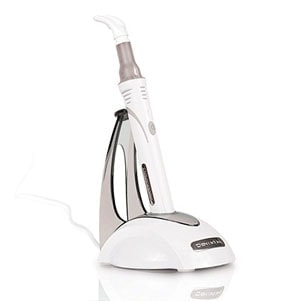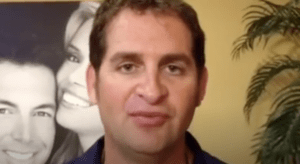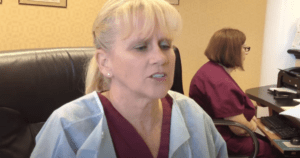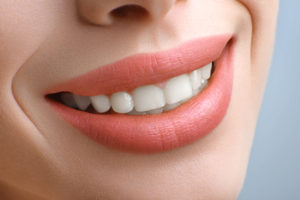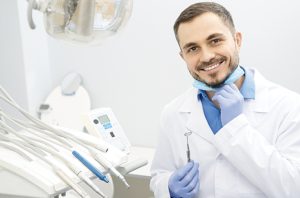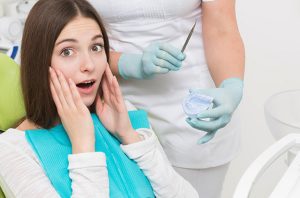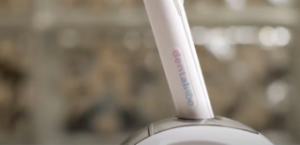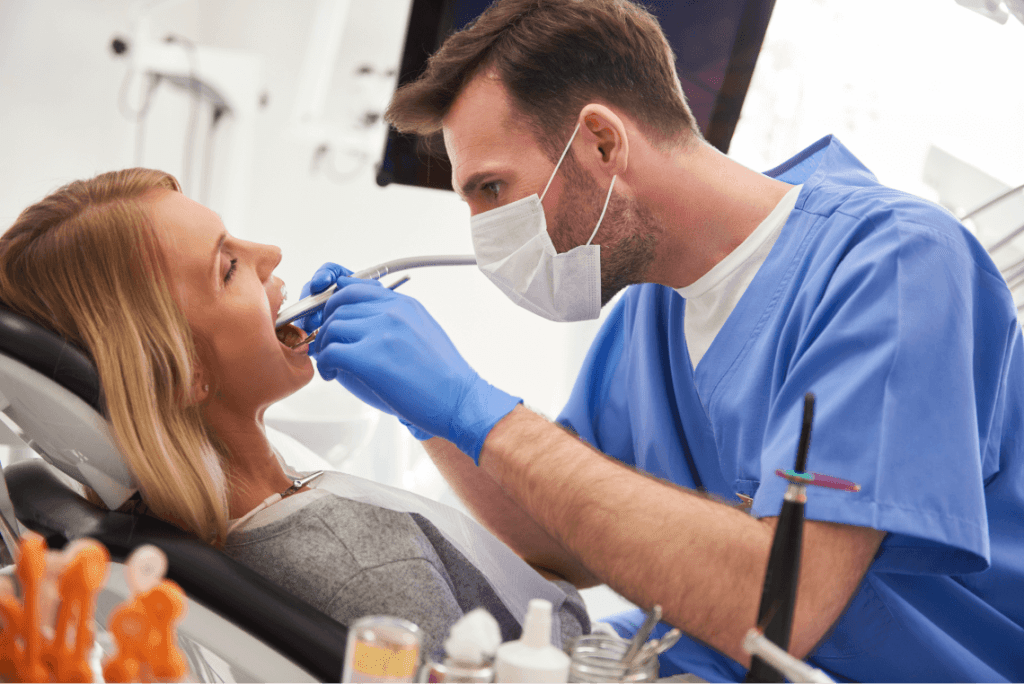Tooth decay occurs when acid — produced by plaque that builds up on teeth — attacks and degrades the tooth. Plaque buildup not only causes cavities, it can also lead to gum disease, dental abscesses, and other serious dental issues. The good news is, there are several steps you can take to prevent tooth decay and other oral health concerns.
Consider these 10 things that dentists recommend — and practice themselves — in order to maintain good oral health.
1. Visit your dentist regularly
All adults should schedule regular dental checkups twice per year, even if there are no signs of tooth decay or other dental issues. Tooth decay and other oral health conditions are easier to address and treat when caught early, and your dentist is better at spotting early symptoms that could turn into bigger problems. If your dentist believes you to be at risk of any dental problems, they may advise that you schedule checkups more frequently. Do your best to follow your dentist’s guidance to prevent major dental issues such as tooth loss.
2. Avoid sugary and starchy foods and drinks
Sugary and starchy foods can leave a damaging residue on teeth that leads to plaque buildup and tooth decay. Some of the worst foods for your teeth include hard candy, carbonated sodas, dried fruit, and popcorn. If you do indulge in surgery drinks or snacks, make sure to brush your teeth afterwards. And check your medications, too. Some medicines, cough drops, and other items may contain sugar, so read labels and seek sugar-free alternatives.
3. Practice good oral hygiene
Brush your teeth thoroughly, floss at least once a day, and use a dentist-approved mouthwash to ensure that your teeth are clean and free of decay-causing residue. Not only will this leave you with fresh breath, it will also limit the opportunity for plaque to build up on teeth.
4. Use a fluoride toothpaste
Take a moment to double-check the label on your toothpaste. Does it contain fluoride? Fluoride helps protect your teeth from acids that can cause tooth decay, and helps remineralize and protect your teeth after acid attacks your tooth enamel.
5. Consider an electric toothbrush
Research has shown that electric toothbrushes clean teeth better than traditional toothbrushes. Electric toothbrushes provide thorough yet gentle scrubbing action, which protects against “brushing too hard,” something some people are guilty of when trying to clean their teeth well. Overly aggressive brushing can actually damage teeth and gums and cause gum recession. The gentle yet thorough cleaning provided by an electric toothbrush is a better solution.
6. Drink lots of water
Staying properly hydrated isn’t just good for your overall health, it also helps prevent tooth decay. When you’re dehydrated, your body doesn’t have enough fluid to produce saliva, and saliva is one way that the mouth cleans and protects your teeth. Saliva neutralizes acids in the mouth by washing away acid residue from food. When acid attacks your tooth enamel, saliva repairs the tooth through a process called remineralization. Saliva also protects against gum disease and other oral infections.
If you have dry mouth, please speak to your dentist or oral care provider about solutions that may help prevent decay.
7. Avoid smoking and tobacco products
In addition to being harmful to your body in other ways, tobacco interferes with saliva production. And people who smoke and use other tobacco products have a higher risk of oral cancer.
8. Drink alcohol in moderation
Alcoholic beverages can also contribute to the erosion of tooth enamel, so it is best to enjoy in moderation. Brush your teeth well soon after drinking, if possible.
9. Consider sealants
Whether you have had several root canals and fillings or none at all, ask your dental health care provider if sealants are right for you. Sealants help protect your teeth by providing a resin barrier that guards your teeth from the effects of acid and decay. This makes it tougher for bacteria to take hold in your mouth.
10. Take a careful look at your medications
Prescription medications usually come with a long list of side effects, and one you might not expect is possible tooth decay. Some medications can contain sugar or cause dry mouth and other issues that can affect your oral health. Read the information accompanying your medications carefully, and talk to your physician and dentist about any concerns.
Tooth decay can happen to anyone, even if you brush and floss regularly. If you experience any tooth pain or symptoms such as sensitivity when eating hot or cold foods, schedule an appointment with your dentist immediately.
If you do have a cavity: what you need to know
Sometimes you end up with a cavity despite your best efforts with brushing and flossing. Medications, medical conditions and other factors can often lead to tooth decay, no matter how well we take care of our teeth. If you’re experiencing tooth pain and suspect a cavity, or if you’ve confirmed a cavity with your dentist, know that the situation can be corrected and further damage can be prevented. Like all dental issues, cavities should be addressed as soon as possible to prevent any further damage.
To treat a cavity, your dentist will most likely use an injection to numb the area around the tooth. Many people put off dental procedures as long as possible because of a dental phobia or fear of injections. But avoiding or postponing necessary treatment typically only leads to further pain and complications. Fortunately, there are now tools available that can eliminate the pain associated with dental injections.
Don’t be afraid to make an appointment with your dentist to address your tooth pain and tooth decay concerns. Taking care of your teeth and your mouth is important. If you have anxiety about dental work, please speak to your dental care provider. They have a variety of medications and tools at their disposal to help you have a pain-free and anxiety-free dental care experience.
Find a DentalVibe dentist
Interested in pain-free dentistry? Our directory of certified pain-free dentists is filled with providers who are committed to providing as close to pain-free dental visit as possible! Find a DentalVibe dentist and make dental anxiety a thing of the past!

